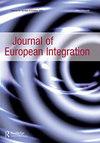Implementation performance in the field of the EU Customs Union: consequences of differentiated policy implementation on customs control efficiency
IF 3.1
1区 社会学
Q1 INTERNATIONAL RELATIONS
引用次数: 2
Abstract
ABSTRACT Research in differentiated policy implementation in the European Union is in vogue because of its strengths for deploying public policies and assessing policy outcomes. This article sets out a path dependency argument about the dynamics of differentiated customs policy implementation in the EU. We analyse two highly representative cases of customs fraud to develop a quantitative and qualitative approach to the impact of customisation on customs control performance: the first, linked to an exercise of unfair competition; the second, a case of customs common standards ‘misinterpretation’ related to path dependency. We conclude that differentiated policy implementation has proved inefficient for ensuring an equivalent level playing field of customs controls in the EU, resulting in three substantial negative outcomes: economic and budgetary; problem-solving capacity; and output legitimacy. Differentiated policy implementation can lead to a competitive disadvantage, especially when dealing with policies that do not permit any graduation in their fulfilment.欧盟关税同盟领域的执行绩效:差别化政策执行对海关管制效率的影响
欧盟差别化政策实施研究因其在公共政策部署和政策结果评估方面的优势而备受青睐。本文提出了关于欧盟差异化关税政策实施动态的路径依赖论证。我们分析了两个极具代表性的海关欺诈案例,以开发一种定量和定性的方法来研究定制对海关管制绩效的影响:第一,与不公平竞争的行为有关;第二,与路径依赖相关的海关共同标准“误解”案例。我们的结论是,事实证明,在确保欧盟海关管制的同等公平竞争环境方面,差异化政策的实施效率低下,导致了三个实质性的负面结果:经济和预算;解决问题的能力;以及产出合法性。差异化的政策执行可能导致竞争劣势,特别是在处理不允许任何毕业的政策执行时。
本文章由计算机程序翻译,如有差异,请以英文原文为准。
求助全文
约1分钟内获得全文
求助全文

 求助内容:
求助内容: 应助结果提醒方式:
应助结果提醒方式:


